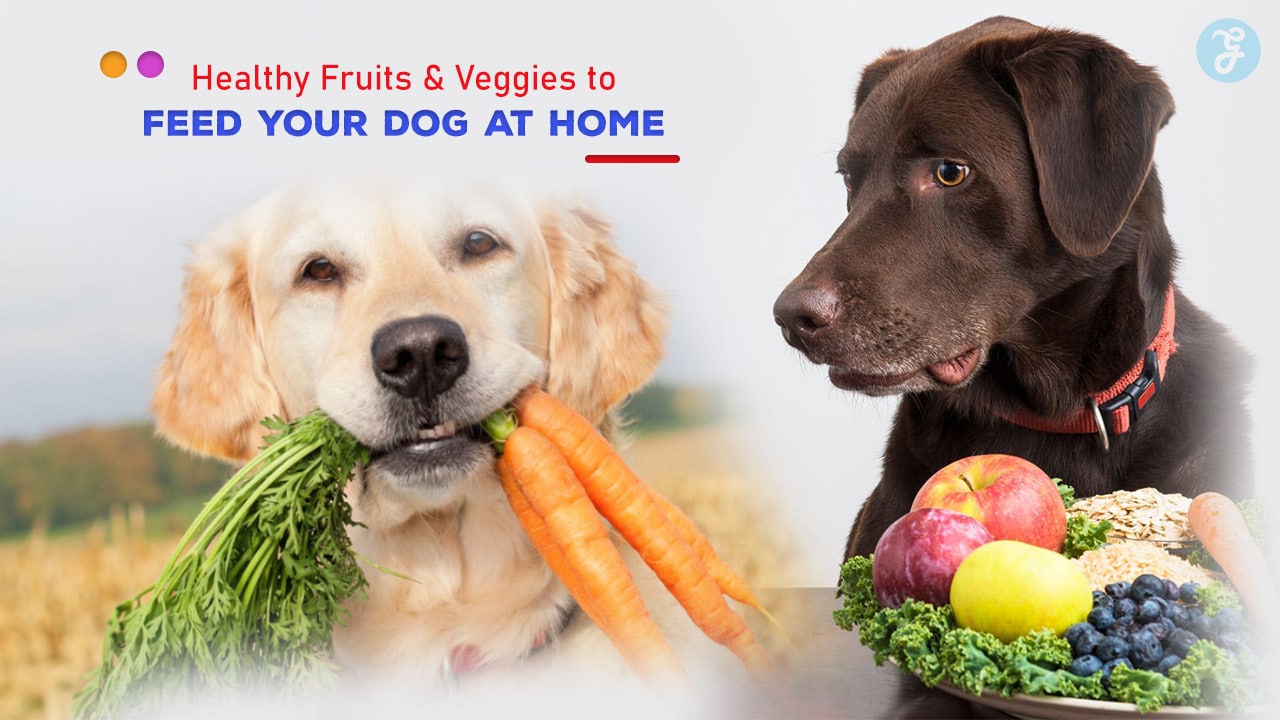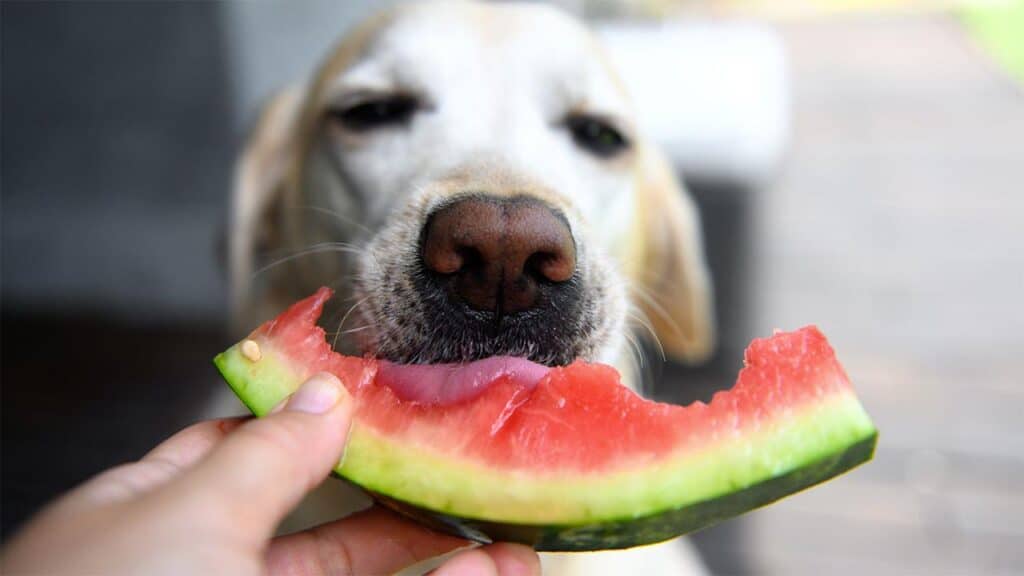Every dog owner wants the best for their furry friend, and that includes making sure they get the healthiest diet possible. While commercial dog food specifically caters to a dog’s nutritional needs, adding fresh fruits and vegetables to your dog’s diet can offer additional vitamins, minerals, and antioxidants.
However, it’s essential to know which fruits and veggies are safe and beneficial for dogs. In this article, we’ll explore 15 healthy fruits and vegetables that you can feed your dog at home, how these foods can benefit their health, and the best ways to prepare them.
1. Carrots
Carrots are a fantastic vegetable for dogs. They are low in calories and high in fiber, making them a nutritious snack for pups who need to watch their weight. Vitamin A, essential for maintaining good vision, supporting a healthy immune system, and promoting healthy skin and coat, is abundant in carrots.
Benefits: Carrots help clean your dog’s teeth and provide a satisfying crunch. Vitamin A helps improve eyesight, especially in low-light conditions.
Serving Tip: You can serve carrots raw or cooked. Cut them into small pieces to prevent choking hazards, especially for smaller breeds. Frozen carrot sticks also make for a refreshing treat during the summer months.
2. Blueberries

Blueberries are a superfood for both humans and dogs. Antioxidants, found in these small berries, can combat free radicals, which can lead to cell damage. Blueberries are also rich in vitamins C and K, which help boost your dog’s immune system and improve bone health.
Benefits: Antioxidants help improve cognitive function and combat aging. Blueberries are also low in calories, making them an excellent choice for training treats.
Serving Tip: Moderately offer blueberries to your dog, as overindulging in them can upset his stomach. You can mix a handful of fresh or frozen blueberries into your dog’s regular food or offer them as individual treats.
3. Sweet Potatoes
Sweet potatoes are an excellent source of dietary fiber and are full of vitamins B6, C, and beta-carotene. These nutrients contribute to healthy digestion, support the immune system, and provide antioxidants that can keep your dog in top shape.
Benefits: Sweet potatoes are known to promote good digestive health and help maintain steady energy levels. Sweet potatoes’ beta-carotene also contributes to eye health.
Serving Tip: Always cook sweet potatoes before giving them to your dog, as raw sweet potatoes can be difficult to digest. You can steam, bake, or boil sweet potatoes and serve them in small, bite-sized pieces.
4. Apples
Apples are a nutritious fruit to feed your dog in moderation. They are rich in fiber, vitamin C, and vitamin A. Apples are especially beneficial for senior dogs as they provide antioxidants that can help prevent cognitive decline.
Benefits: Apples help freshen your dog’s breath and promote healthy teeth. Their fiber content aids in digestion, and vitamin C supports a healthy immune system.
Serving Tip: Always remove the core and seeds, as apple seeds contain cyanide, which is toxic to dogs. Cut the apple into small, manageable pieces and serve it as a treat.
5. Green Beans
Green beans are low in calories and high in fiber, making them an ideal snack for dogs who need to lose a few pounds. They are also full of vitamins C, K, and manganese, which are essential for overall health.
Benefits: Green beans are perfect for weight management and help maintain a healthy metabolism. Their fiber content supports good digestive health.
Serving Tip: You can offer green beans cooked or raw. Avoid adding any seasonings or salt, as these can be harmful to your dog.
6. Bananas
Bananas are a good source of potassium, vitamin B6, and vitamin C. They also contain fiber, which helps with digestion, and natural sugars that provide an energy boost.
Benefits: Potassium helps maintain healthy heart function, while vitamin B6 is essential for brain health. Bananas can also help soothe an upset stomach.
Serving Tip: Cut bananas into small pieces to facilitate your dog’s consumption. Avoid giving them too many bananas, as the natural sugars can lead to weight gain.
7. Cucumbers
Cucumbers are an excellent hydrating vegetable that’s low in calories and high in water content. They are ideal for overweight dogs who need a refreshing, low-calorie snack.
Benefits: Cucumbers help keep your dog hydrated and can aid in weight management. They also contain vitamins K, B1, and C, as well as potassium and magnesium.
Serving Tip: Slice cucumbers into thin, bite-sized pieces. Always remove the seeds before feeding them to your dog.
8. Spinach
Spinach is rich in iron, calcium, and vitamins A, C, and K. It’s a great addition to your dog’s diet in small amounts, as it can help improve overall health, boost the immune system, and support strong bones.
Benefits: Spinach contains antioxidants that can help protect against chronic diseases. It also promotes healthy bones and a robust immune system.
Serving Tip: Cook spinach and serve it in moderation at all times. Raw spinach contains oxalic acid, which can block calcium absorption, but cooking reduces this effect.
9. Pumpkin
Pumpkin is a nutrient-dense food that is fantastic for dogs, especially for digestive health. It is rich in fiber, vitamins A, E, and C, and potassium.
Benefits: Pumpkin helps regulate digestion, making it effective for both constipation and diarrhea. Vitamin A also promotes excellent vision.
Serving Tip: Use plain, canned pumpkins (not pumpkin pie filling) or cook fresh pumpkins at home. Add a spoonful to your dog’s food as a tasty and nutritious supplement.
10. Watermelon
Watermelon is a hydrating fruit that’s safe for dogs to eat in moderation. It primarily consists of water, which helps keep dogs cool and hydrated, and it contains vitamins A, B6, and C.
Benefits: Watermelon is perfect for hydration, especially during hot summer days. It also provides antioxidants and promotes a healthy immune system.
Serving Tip: Always remove the seeds and rind before giving watermelon to your dog, as they can cause digestive issues. Serve it in small, bite-sized chunks.
11. Broccoli
Broccoli is a nutrient-dense vegetable packed with vitamins C, K, and fiber. Dogs benefit greatly from broccoli in moderation, but excessive feeding could cause digestive upset.
Benefits: Broccoli helps boost immunity and supports healthy bones. It’s also low in calories, making it a great snack for dogs trying to maintain a healthy weight.
Serving Tip: Serve broccoli in small pieces, either cooked or raw, but without any seasoning or oils. Too much broccoli can cause gastrointestinal irritation, so only offer it occasionally.
12. Strawberries
Strawberries are sweet, juicy, and packed with vitamin C, fiber, and antioxidants. They also contain enzymes that can help whiten your dog’s teeth naturally.
Benefits: Strawberries are excellent for boosting immunity and supporting healthy skin. The natural enzymes can help keep your dog’s teeth clean.
Serving Tip: Cut the strawberries into small pieces to make them easier for your dog to chew. You can offer them as a healthy, occasional treat, but be mindful of the sugar content.
13. Zucchini
Zucchini is low in calories and full of vitamins like A, C, and potassium. It’s a popular vegetable for dogs who need a healthy, low-calorie snack.
Benefits: Zucchini supports weight management and provides essential vitamins that help maintain excellent overall health. It’s also rich in antioxidants.
Serving Tip: Slice zucchini into small, bite-sized pieces and serve it raw or cooked. Make sure there are no added seasonings, as these can be harmful to dogs.
14. Pears
Pears are another fruit that’s safe for dogs to eat in moderation. They are rich in fiber, vitamin C, and vitamin K, which all contribute to your dog’s overall well-being.
Benefits: Pears help improve digestion and support a strong immune system. The fiber content is beneficial for digestive health.
Serving Tip: Remove the seeds and core before giving pears to your dog, as the seeds contain cyanide, which can be toxic. Cut the pear into small, manageable chunks for easy eating.
15. Peas
Peas, such as green peas or sugar snap peas, are a great source of vitamins A, B, and K, as well as minerals like iron, zinc, and magnesium. They are perfect for adding some extra nutrients to your dog’s diet.
Benefits: Peas help boost energy levels, promote good heart health, and support bone development.
Serving Tip: You can serve peas fresh or cooked. Avoid canned peas, as they are often high in sodium, which can be harmful to dogs.
Conclusion
Adding a variety of healthy fruits and vegetables to your dog’s diet can provide numerous health benefits, from boosting immunity to supporting good digestion and maintaining a healthy weight. However, it’s essential to remember that moderation is key, as overfeeding even healthy foods can lead to digestive issues or other health problems.
Always introduce new foods slowly and watch for any adverse reactions. When in doubt, consult your veterinarian to ensure that the fruits and vegetables you’re feeding your dog are appropriate for their specific dietary needs.
By providing your dog with these nutrient-rich foods, you’re not only treating them to something delicious but also contributing to their overall health and happiness.




































